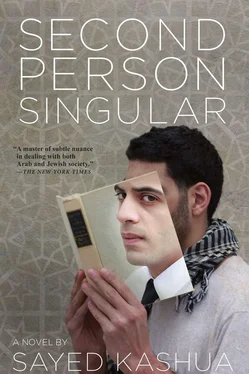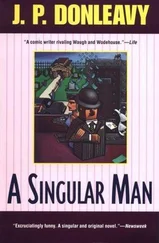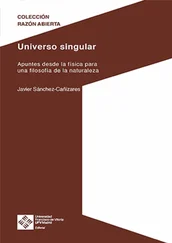She went quiet and I felt a weight on my chest on account of what I was doing. But I continued on with the same false optimism, fawning over the professor and the make-believe master’s degree, which I had no intention of pursuing. “So, Mom, I actually spoke with the head of the east Jerusalem office, the guy I did the internship with, and he was really happy because he needs someone and he said he could get me a position right away and that they would count the internship as a year of experience, which means I’d get a higher salary.”
She remained silent. What I was telling her was that not only was I not coming home, but that I was staying in Jerusalem for three more years at least, which made it twice as long as she had originally thought. And even back when I finished high school, she had begged me to study in Tel Aviv or at Bar Ilan University so that I could sleep at home every night, and then, too, I had sold her some story about talking to people in the field who said that a degree from Hebrew University was worth far more.
“But I’m not entirely sure,” I said, trying to cheer her up. “I really wanted to come home already. I’m sick of this city. I also want to rest a little after all this studying. I mean, I’m really happy I got these offers, but I haven’t made up my mind yet. I’ll come home for the holiday, Mom, and then we’ll talk. In the meantime, I’ll do some thinking on my own. The truth is, I’m really kind of tired. We’ll see, all right?”
I tried to keep myself busy till four. I went over my notes from my conversation with Daud Abu-Ramila, my addict, and then filed some papers in a tan folder and flipped through the many case histories in the long-dormant files. Testimonies from addicts, their wives, their social workers, reports from house calls, descriptions of violence and neglect. What interested me most were the reports about the welfare of the children. Were they in school? Were they working? Had they been sent away to foster homes? During those last hours of the workday the office was completely silent. At exactly four, I punched my time card and walked out, saying good night to the janitor, who pushed his mop across the outdoor steps and looked at me with a gaze both supportive and pitying — he knew exactly what went on in the office.
I strode through Wadi Joz to Salah al-Din Street. Dark clouds drifted to the east and I hoped it would rain. Joining a throng of people waiting for a ride, I managed to get on the third Transit that came past. There was one spot available, next to a pretty girl. Taking my seat, I looked over at her briefly, feigning nonchalance, and then didn’t dare to look her way again. I usually tried not to sit next to young women. The best option was to sit next to a man and if that wasn’t possible then an older woman. I pulled my body in so that the sleeves of my coat wouldn’t touch her arms. I pressed my legs close to one another and laid my black bag on my lap. For the duration of the ride I made sure not to let my gaze stray far from the window and soon enough I forgot all about the girl beside me. Instead I immersed myself in my favorite hobby, peering into homes, looking for lit rooms in otherwise dark buildings, for the glow of television sets, and wondering about the people inside — were their rooms warm, were they surrounded by children who had come home from school, were they doing homework together, watching cartoons, enmeshed in family life?
“Excuse me,” the girl’s voice pulled me back to the taxi. The old Transit had pulled up next to the mosque in Shuafat and she wanted to get off. I didn’t want her to have to squeeze past me, for her legs to brush up against mine, so I opened the taxi door and got out, clearing the way for her. She didn’t say thank you and I sat back down in my seat and hoped that Wassim had not yet left for his second job. I just wanted to chat with him, hear how his day had gone and touch base, if only for a moment.
SODIUM CHLORIDE
During my first weeks at the Nusseibah housing projects I hardly left the building, aside from daily trips to work and the occasional trip to the grocery. I shopped for the three of us and after a while Majdi started calling me the Minister of Shopping. I’d get receipts for the things we shared — bread, eggs, sausages, cheese — and we’d split the cost three ways, even though I’d frequently get a fancier cheese or a more expensive sausage and ask the grocer to put it on a separate bill. “Ever since you arrived we have cleaning supplies in our apartment,” Majdi would say, laughing at the sight of floor cleaning liquid or dish soap.
I took charge of the actual cleaning also. That meant scouring surfaces that hadn’t been touched since the day the cousins moved in. My first mission was the refrigerator. Majdi and Wassim were shocked to learn that its interior could be cleaned and that the shelves could be made white again. The bathroom was no easier. It took an entire bottle of sodium chloride and a bottle of bleach to make the sink, bathtub, and toilet somewhat acceptable. I’m not sure if I cleaned because I wanted to combat the filth or simply because I wanted something to do with myself, a way to pass the time until Wassim and Majdi came home. They arrived one after another, at just before nine thirty.
Other than late in the evening, it was rare for the three of us to be awake and together in the apartment at the same time. Wassim and Majdi worked whenever they could, even on the weekends, trying to earn a little extra cash. Those were the worst times for me. I tried to entertain myself with the small TV and the old newspapers that Majdi brought home from the hotel. Every once in a while I’d treat myself to a cup of coffee. Those dead hours alone were dreadful enough to make me miss the office, and when I knew I’d have to spend an entire weekend alone in the apartment, I’d photocopy a few files, the thickest ones I could find, and shove them into my bag so that at least I’d have something entertaining to read.
The weekends that we spent together, on the other hand, were glorious. When Wassim and Majdi were off and hadn’t gone home to visit their families, we’d take the bus or a share-taxi down to Damascus Gate and go to Lina for hummus with fava beans. Then we’d meander through the old market, shuffling in and out of the human traffic while Majdi shopped for what he called “hilarious” music, asking the shop owners to play him a track from, say, Egyptian pop star Ahmad Adawiya’s newest album and then bursting out laughing. He liked Sheikh Imam, Ziad Rahbani, Michel Halifa, and a Palestinian band called Sabarin, which he talked about constantly. Wassim, whom Majdi called a hopeless conservative, liked the classics, always on the look-out for el-Halim, Farid al-Atrash, Sabah Fakhri, and Fairuz. I didn’t buy cassettes. I didn’t own a single tape of my own. Nor did I have a stereo. But I was fine with whatever they played at home. All-out wars would erupt over which music was to be played during what we called our narghile nights.
Majdi was the master of the narghile. Like an artist at work he would shape the tobacco in his hands — the flavor of choice was usually apple — then he’d cover the tobacco with aluminum foil and punch strategic holes with a toothpick, laying the heated coals over the aluminum tent. He’d sit with the rubber hose in his hand and take monumental pulls from the water pipe. The king of nonsense, Wassim would say. The two of them passed the hose from mouth to mouth, exhaling long plumes of smoke toward the ceiling. I tried the pipe a few times, but I couldn’t really figure out what to do with the smoke once it was in my mouth. In the end I gave up trying, but still very much loved the narghile nights. Especially the tea, a weak brew with sharp mint leaves and tons of sugar — three teaspoons in each little glass.
Читать дальше












